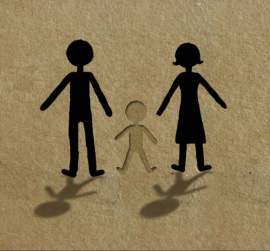
Guardianship vs. Adoption

Family Forms
Often, people confuse and they use the terms guardianship and adoption interchangeably. However, there is a great deal of difference between a legal guardianship and an adoption.
While one gives an individual the responsibility to act as a temporary parent of a child, the other permanently relinquishes the rights and the responsibilities of a child's biological parents. It is important to understand these differences if considering either one of these legal processes.
A legal guardianship occurs when an individual who is not a parent of the child is granted the rights of a parent in regard to that child. A legal guardian will assume all of the responsibilities that a parent would have, such as providing financial and emotional support for the child. They provide the child with the basic necessities required to survive, and ensure that the child is receiving a proper education.
A legal guardian will also receive new rights, through which they can make decisions that will effect the child's life. For example, a guardian will have the right to consent to medical treatment for the child. Although a guardianship provides an individual other than the parent of the child the rights and the responsibilities of raising the child, it does not necessarily relinquish the birth parent's rights over that child.
There are many different forms of guardianship, and many of them will still allow the parents to be included in the child's life. Usually, a guardianship is not permanent. It may be revoked at any time if the parents of the child show evidence that they are able to adequately care for the child. Also, a guardianship will usually require that the parents of the child continue to provide financial support to the child. An adoption is quite different.
An adoption is the legal process by which an individual assumes all of the rights and responsibilities that are involved with parenting and caring for a child. During an adoption, the biological parents of the child lose all of the rights and the responsibilities that they had to that child. Legally, the tie between the child and their biological parents is severed, and the parents will no longer have any say in the child's life.
After an adoption, the biological parents have no obligation to provide financial support to the child. However, they also receive no visitation rights, unless previously agreed upon. An adoption is permanent, it can not be terminated or revoked by the child's biological parents. Once an adoption takes place, there is no way to take it back.
If the child's biological parents were to pass away, the child would have no right to inherit from them, unless it was specifically stated in their will. An individual who chooses to take on the responsibility of adopting a child will be considered the parent of that child. Along with all of the new responsibilities, they will also acquire the rights to make any decision regarding the life of that minor.
NEXT: How to Adopt a Child?




















